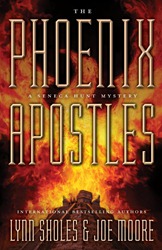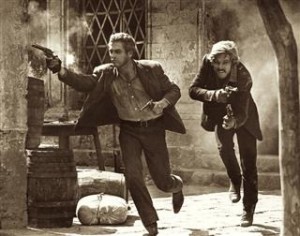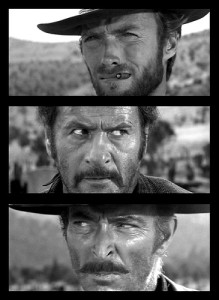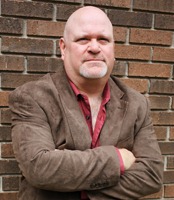By Joe Moore
We’ve all gotten them. Some are personalized and contain constructive criticism. Others are form letters addressed to “author”. Some have been photocopied so many times that the cryptologists at the NSA couldn’t even decipher  their original message. Or they might arrive as a brief thanks-but-no-thanks email. They all say the same thing: your manuscript is not for us.
their original message. Or they might arrive as a brief thanks-but-no-thanks email. They all say the same thing: your manuscript is not for us.
Rejected.
There are numerous ways to deal with literary rejection. We can all imagine the negative methods. But today, I want to discuss the positive ways to deal with the not-for-us letter.
After you’ve amassed an impressive stack of rejection letters, start by asking yourself if your query letter or synopsis might be the issue. You might have written the next Great American Novel, but if your sales pitch—your query letter—doesn’t do the job, the editor won’t want to move to the next step of requesting a sample. One method of improving your query and synopsis is to get help from an impartial third party such as a published author, writer’s forum or critique group. If you know someone who’s already published, ask if they can read your letter and give you advice on where you might be going wrong. Many online forums such as AbsoluteWrite, Writing Forums, and others have specific sections on query evaluation and feedback. Use them.
Next, you want to determine if you’re really targeting the appropriate publishers or agents. This is where you need to study the market. Go to the local bookstore and find novels that are similar to your manuscript. Make a note of the publishers. Many novelists include the name of their editor or agent on the acknowledgements page. Note those names. Then go online and visit the publisher’s websites. Read the descriptions of the plot on Amazon and B&N, and compare to yours. Google the agents names. Look at their list of clients. Are those writers some of your favorites? Do they write books similar to yours? Do your homework and focus on specific publishers and agents that deal with your kind of book.
Another question you need to ask yourself is if your book is as good as it can be. Of course, you’ll probably answer yes. Then take a moment to really consider the question. Are you being rejected repeatedly because the manuscript is just not ready for publication? Chances are, it probably isn’t.
So what should you do? Again, get outside help. One of the best ways to improve a manuscript is to join a local critique group. Most towns and communities have a library. Ask the local librarian if there are any groups that meet in the area. Check with the local bookstore. They usually know of critique groups or have bulletin boards that might list them. Critique groups that are made up of serious writers can be a huge benefit to helping you improve your work. Just remember that critiquing is a two-ways street. You want honest and sincere feedback, and you need to be prepared to give it back to your fellow members. There’s a very good chance that a group of fellow writers can help you get your story in shape so you can start submitting again.
Finally, don’t shoot the messenger. Agents and editors are in business to make money. If they don’t sell books, they go broke. If they don’t discover new books from new authors, they eventually go out of business. Their rejection of your work is nothing personal. Chances are, they don’t even know you. All they know is what they read in your query or sample. And the reasons for rejecting a manuscript can be as numerous as the number of submissions they received that day. Don’t blame them.
Forget about the lame excuses like: publishers only publish big established names and famous people. Or your book was rejected because it’s “different”, experimental, too unique for mainstream. Or you can’t believe they rejected your book when there’s so many bad books published. Go to The New York Times bestseller list. Look at all the writer’s names. Each and every author on that list was once an amateur struggling to get someone to read their manuscript and dreaming of making money as a published author. Every one of them fantasized about seeing their name on that list. What did they do? They realized that rejection really doesn’t mean “not for us”. It means “not ready for us yet”. Now go fix your book.
Any rejection stories to share? How many rejection letters did you get before that first book was published? If you’re published, do you still use a critique group or beta readers?








